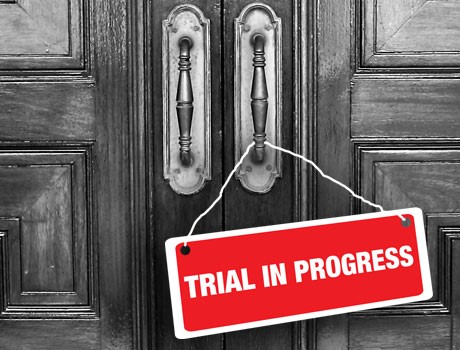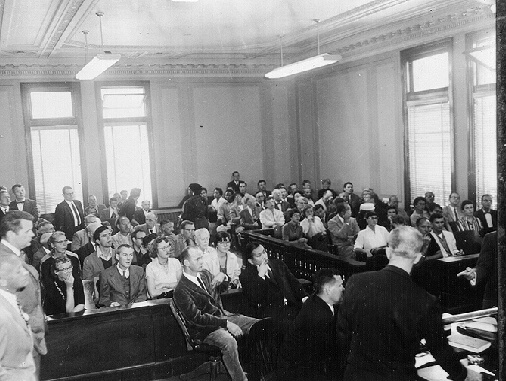
 The Sixth Amendment guarantees a criminal defendant’s right to a “public” trial. The Texas Court of Criminal Appeals recently confronted the question of whether and under what circumstances a criminal defendant may lose that right.
The Sixth Amendment guarantees a criminal defendant’s right to a “public” trial. The Texas Court of Criminal Appeals recently confronted the question of whether and under what circumstances a criminal defendant may lose that right.
Bobby Joe Peyronel was convicted of a criminal offense. During a break in the punishment phase of Peyronel’s trial, an unidentified female supporter approached a juror and asked how it felt to convict an innocent man.
Fearing juror intimidation and apparently unable to identify the woman, the prosecutor asked the judge to exclude all female members of Peyronel’s family from the courtroom. Peyronel objected, arguing that granting the request would exclude Peyronel’s wife and daughter and give the jury the impression Peyronel had no supporters. (The CCA’s decision did not explain why the judge did not just question the juror, identify the woman who made the comment, and exclude her from the courtroom.)
In a possible overreaction, the judge ordered all witnesses and observers out of the courtroom. The punishment phase of the trial proceeded with witnesses waiting outside the courtroom until time to testify.
Peyronel appealed, arguing a violation of his constitutional right to a public trial. No one disputed that right. However, the State argued that because Peyronel did not ask the trial judge to do anything and did not inform the judge that he planned to appeal based on an alleged Sixth Amendment violation, Peyronel had forfeited his public-trial right.
The Court first considered whether the right to a public trial is mandatory (must be enforced no matter what a defendant says or does), waivable (can be knowingly and intentionally relinquished by a defendant), or forfeitable (can be given up if a defendant does not insist on enforcement). The court briefly reviewed cases from other jurisdictions and concluded the public-trial right could be forfeited.
The Court then considered whether Peyronel had forfeited his public-trial right. Although Peyronel objected to the trial judge’s order to clear the courtroom, the CCA did not consider that to be the equivalent of asserting a violation of his constitutional right. The court said there was no “magic language” Peyronel needed to use to assert the violation, but he at least had to specifically state what he wanted the trial judge to do and upon what grounds his request was based. The CCA determined Peyronel did not meet that standard and, as a result, forfeited his right to a public trial.
Read the full opinion: Peyronel
In a strong dissent, Justice Johnson noted that the prosecutor’s request was just to exclude female family members from the courtroom and Peyronel objected, arguing that such a broad action would remove his wife and daughter. Justice Johnson said that objection was sufficient on its own and it also implied Peyronel’s objection to a complete exclusion.
Justice Johnson compared the situation to buying an appliance. If a customer has a two-foot-wide space for an appliance and a seller tries to sell an appliance that is two inches wider, the customer will object. By objecting to that appliance, Justice Johnson said, the customer is also making it clear that he would object to the seller substituting an appliance even wider than two feet, two inches. According to Justice Johnston, when Peyronel objected to the exclusion of female members of his family because it was too broad to accomplish the intended purpose, that also constituted an objection to the exclusion of even more people and made it clear to the trial judge that his order to clear the courtroom was too broad as well.
Peyronel v. Texas is interesting in at least two respects. Anecdotally, it seems odd that neither the majority nor the dissenters were troubled at all by the fact that the trial judge went beyond the prosecutor’s request and ordered everyone from the courtroom rather than trying to identify the woman who was the object of concern and removing her.
More fundamentally, the principle that some constitutional rights can be waived is well established; for example, Miranda rights are frequently waived. But, the court’s opinion suggests that a defendant can lose his constitutionally protected public-trial right by not speaking up, or, presumably, by speaking up but not speaking loudly or eloquently enough.


 The Sixth Amendment of the United States Constitution guarantees an accused the right to a public trial in all criminal prosecutions.
The Sixth Amendment of the United States Constitution guarantees an accused the right to a public trial in all criminal prosecutions.





